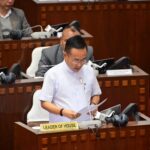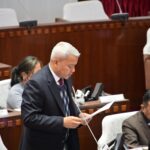Summit Times
Our mission is to stay ‘on top of the news’ – the tagline for our paper – and bring to our readers not just the latest, but also a wider range of news and views from and about the Himalayan region.
We don’t however limit ourselves to any geographical boundaries and the primary criteria for content will be relevance: relevance, we assure you, will always enjoy primacy over sensationalism and nuance will never be abandoned for jingoism.
We will also consciously make space to report on and explain issues which don’t otherwise find enough traction in mainstream media.
We start off with this basic checklist and invite you join us on this journey which will definitely be exciting for us and will hopefully also be meaningful for you!
Let’s Find Other VIPs
Not everything should be about politics, always
Commenting on the content of newspapers, particularly this one, a reader who wants to like the paper but cannot, complained that politics was not covered enough. In fact, politics is rarely front-paged here, she complained. Relax, what follows is not a soliloquy on the editorial policy of the paper, but, for now, let’s continue with the premise that this piece opened with.
Sure, political parties and politicians say something every day, but that is not politics because there are rarely any real ideologies at play or even political commentary. There is a lot of name-calling, endless allegations and many a times, mind-bafflingly philosophical gobbledygook in response to even the most pedantic of allegations.
And there are claims. Coming mostly by way of press releases, this is a one-way communication in which clarifications and details are controlled. So, while it is necessary for people to know what their parties are saying, just because they said it does not mean it is important.
At the end of the day, none of this is really politics, because none of this is of any long-term significance or even of sustaining interest. At best, it is a lot of politicking in its purest, dictionary-definition of “activity directed towards acquiring power and influence, achieving one’s own goals”.
But we are nation obsessed with politicians and politicking – switch on TV news or open any newspaper or news-magazine and you will receive affirmation of this. But why are we so obsessed with politicians.
Some years ago, a senior TV news anchor who spends more time anchoring stories about politicians exchanging barbs than deliberating on politics, explained that in the absence of any other heroes [the definition probably limited to ‘celebrities’], journalists had no option but to zero in on the politicians, who were easily recognizable, always in the public domain and always willing to offer quotes and interviews. He was not wrong.
Who does India have apart from politicians when it comes to celebrities who can feed news cycles on a regular basis? Some cricketers, Bollywood stars, erratic flickers in other sports, tennis for a while, and now wrestling and badminton as well.
Because of our culture which does not allow our “famous people” to speak their minds or take a stand, the non-political celebrities make for boring copy because they clam up the moment they are invited to speak of anything beyond their individual performance. And let’s also accept it.
We are not a very sporty population and our “passion” for sports is in fact just media-managed hyperbole. How else does one explain the fact that we suddenly discovered Deepa Karmakar on the eve of the Olympics. Rio was when she peaked. If we had been a sports-loving people, we would have seen her grow as a gymnast.
In fact, if the media had not played up her Olympian feat, being media-fed spectators, we would probably not have bothered with feting her either. Ditto for the stars who dazzled in the recent Asian Games.
With news channels running on 24×7 cycles, and newspapers adding more pages hoping to win more readers, politicking ends up gaining primacy because it offers ready masala. But politicians can be extremely fickle, changing their stands often or being too predictable.
As a result, what the media feeds the audience when it plays up “politics” ends up being too superficial. And that delivers us the chicken-and-egg quandary. Will people pursue real role models or will media seek them out? People need to patronise real heroes who are consistent in their pursuits and reliable as icons.
The media will scent the mood the people and start giving these personalities more media-time and that will hopefully leave the politicians with the time and space to debate at an ideological level and comment on policy initiatives rather than remain obsessed with corny jingoism which makes for sensational headlines but does nothing for to deliver better governance or more responsible opposition.
Even Sikkim needs to find role-models outside the political and bureaucratic domain. Apart from the fact that such personalities are available but under-appreciated, there is also the need to introduce the young to more versions of what being successful means.
Such exposure will also cushion some of the contradictions the young grow up with when they seek out inspiration. Sikkim seems to keep forgetting that it takes more than politicians to make a society and more than political gossip to make a conversation.
Every society and every generation needs heroes and role models and it would be unfair to suggest that Sikkim has not produced enough variety.
What is unfortunate is that the people don’t seem to recognize these achievers beyond the occasional expressions of drummed up celebration.





